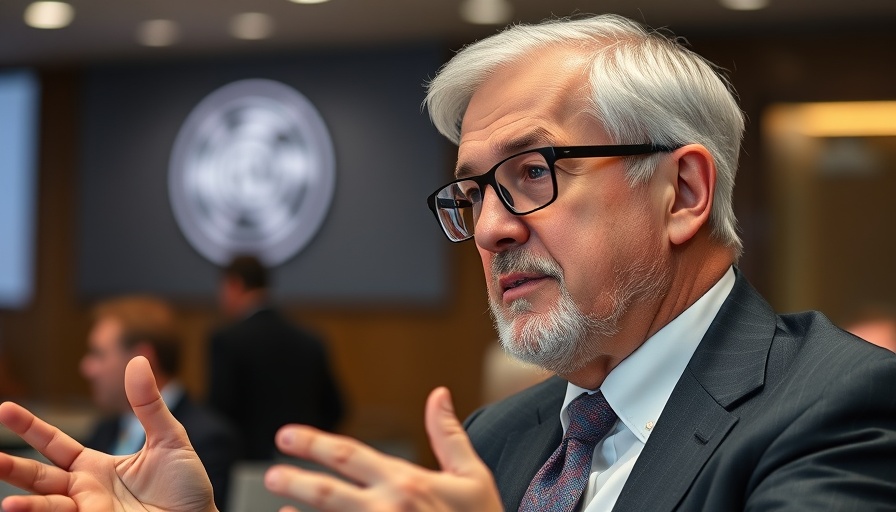
Trump's Stance on Powell: A Stabilizing Force for Markets
In a recent statement, former President Donald Trump reaffirmed his commitment to keeping Jerome Powell as the Federal Reserve Chair, saying, "I have no intention of firing him." This declaration comes amidst rising concerns regarding inflation and economic stability in the U.S. as businesses and investors alike watch the Fed’s strategies closely. Trump's decision to maintain Powell draws attention to critical discussions around monetary policy and its long-term effects on the economy.
The Importance of Leadership in Economic Policy
The Federal Reserve's role in managing inflation and interest rates has always been pivotal, especially during tumultuous economic times. Powell's leadership has encouraged a more transparent approach, aimed at boosting market confidence. By asserting his support for Powell, Trump may be aiming to reassure financial markets that continuity will prevail, which is often crucial during periods of uncertainty.
The Interplay Between Politics and Economic Strategies
The intersection of politics and economic policies is likely to become a focal point as the U.S. gears up for upcoming elections. As Trump’s support for Powell stabilizes expectations, both current and prospective financial advisors must consider the potential ramifications for general financial planning. Emerging political narratives will impact investment strategies and asset allocations as the public weighs the implications of various leadership styles.
Implications for Financial Investment Strategies
Trump's announcement potentially signals several avenues for investors and financial planners to navigate during these uncertain times. With Powell at the helm, investors might anticipate a continued focus on inflationary control—etiquette that could influence decisions on risk management and portfolio diversification. Elements such as tax-efficient investing and passive income strategies become paramount, requiring astute advisors to guide their clients in an evolving landscape.
Looking to the Future: A Vision for Economic Resilience
As we reflect on Trump's decision, it’s important to understand how his assurance may echo across broader economic policies. Financial independence, retirement planning, and wealth preservation are themes that will gain significance as stakeholders seek security amid fluctuating markets. Engaging with a qualified financial advisor could provide the strategic edge needed to navigate asset allocation and investment strategies in this setting.
Furthermore, understanding concerns around issues like inflation protection will help shape responses from financial institutions, thereby paving the path for future planning. Recent trends show a growing collective interest in estate planning and succession strategies among high-net-worth individuals who are keen on legacy planning amidst changing financial scenarios.
As markets continue to evolve, professionals in the financial sector must tune into the political climate and its potential impact on economic decisions, emphasizing the need for innovative approaches in wealth advising.
Actionable Insights for Investors: Staying Ahead
In this dynamic environment, it is crucial for investors to remain informed and adaptable. Those involved in real estate investment, secured refinancing, or alternative investments should proactively reassess their strategies with the changing fiscal landscape. Staying abreast of market news could mean the difference between seizing opportunities and missing out on significant gains.
Ultimately, as Trump’s administration marks a renewed focus on Powell's steady governance, financial players must leverage these insights to create actionable strategies for enduring wealth growth.
 Add Row
Add Row  Add
Add 




Write A Comment